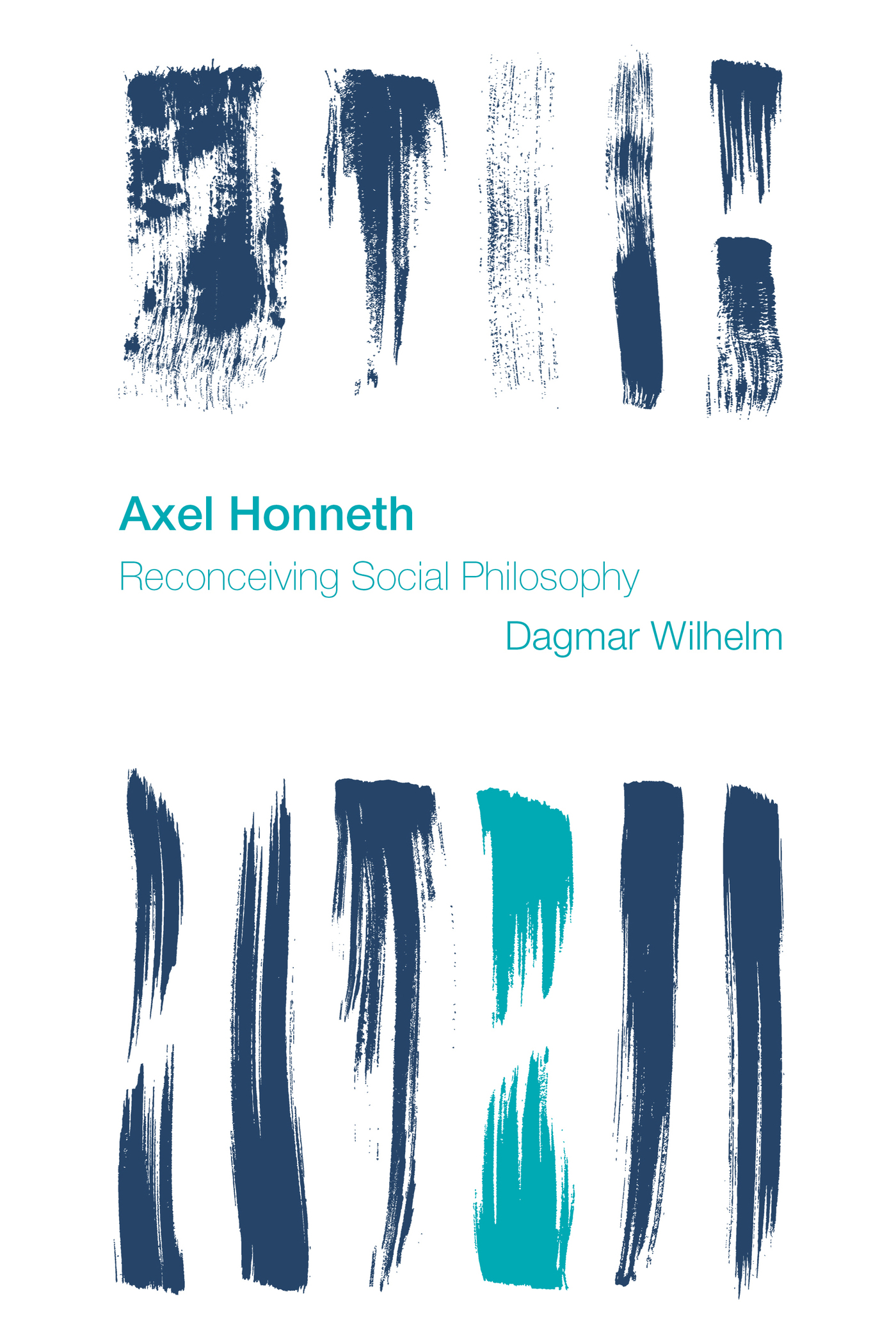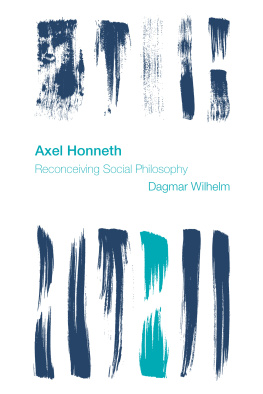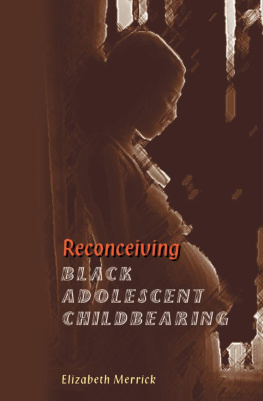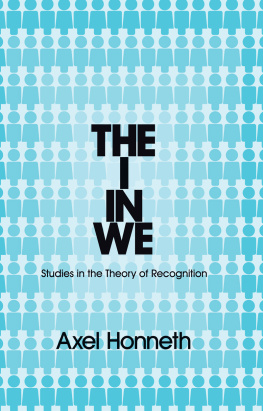Wilhelm - Axel Honneth: reconceiving social philosophy
Here you can read online Wilhelm - Axel Honneth: reconceiving social philosophy full text of the book (entire story) in english for free. Download pdf and epub, get meaning, cover and reviews about this ebook. year: 2012, publisher: Book Network Intl Limited trading as NBN International (NBNi), genre: Politics. Description of the work, (preface) as well as reviews are available. Best literature library LitArk.com created for fans of good reading and offers a wide selection of genres:
Romance novel
Science fiction
Adventure
Detective
Science
History
Home and family
Prose
Art
Politics
Computer
Non-fiction
Religion
Business
Children
Humor
Choose a favorite category and find really read worthwhile books. Enjoy immersion in the world of imagination, feel the emotions of the characters or learn something new for yourself, make an fascinating discovery.
Axel Honneth: reconceiving social philosophy: summary, description and annotation
We offer to read an annotation, description, summary or preface (depends on what the author of the book "Axel Honneth: reconceiving social philosophy" wrote himself). If you haven't found the necessary information about the book — write in the comments, we will try to find it.
Axel Honneth: reconceiving social philosophy — read online for free the complete book (whole text) full work
Below is the text of the book, divided by pages. System saving the place of the last page read, allows you to conveniently read the book "Axel Honneth: reconceiving social philosophy" online for free, without having to search again every time where you left off. Put a bookmark, and you can go to the page where you finished reading at any time.
Font size:
Interval:
Bookmark:
Axel Honneth
Reframing the Boundaries:
Thinking the Political
Series editors: Alison Assiter and Evert van der Zweerde
This series aims to mine the rich resources of philosophers in the continental tradition for their contributions to thinking the political. It fills a gap in the literature by suggesting that the work of a wider range of philosophers than those normally associated with this sphere of work can be of relevance to the political.
Titles in the Series
Kierkegaard and the Matter of Philosophy, Michael ONeill Burns
Arendt, Levinas and a Politics of Relationality, Anya Topolski
The Risk of Freedom: Ethics, Phenomenology and Politics in Jan Patocka, Francesco Tava, translated by Jane Ledlie
Nietzsches Death of God and Italian Philosophy, Emilio Carlo Corriero, translated by Vanessa Di Stefano
Lotmans Cultural Semiotics and the Political, Andrey Makarychev and Alexandra Yatsyk
Axel Honneth: Reconceiving Social Philosophy, Dagmar Wilhelm
Erotic Experience and Sexual Difference in Contemporary Continental Philosophy, Zeynep Direk (forthcoming)
Axel Honneth
Reconceiving Social Philosophy
Dagmar Wilhelm

London New York
Published by Rowman & Littlefield International, Ltd.
6 Tinworth Street, London SE11 5AL, United Kingdom
www.rowmaninternational.com
Rowman & Littlefield International, Ltd., is an affiliate of
Rowman & Littlefield
4501 Forbes Boulevard, Suite 200, Lanham, Maryland 20706, USA
With additional offices in Boulder, New York, Toronto (Canada), and London (UK)
www.rowman.com
Copyright 2019 by Dagmar Wilhelm
All rights reserved. No part of this book may be reproduced in any form or by any electronic or mechanical means, including information storage and retrieval systems, without written permission from the publisher, except by a reviewer who may quote passages in a review.
British Library Cataloguing in Publication Information
A catalogue record for this book is available from the British Library
ISBN: HB 978-1-78348-639-7
Library of Congress Cataloging-in-Publication Data
Names: Wilhelm, Dagmar, 1975 author.
Title: Axel Honneth : reconceiving social philosophy / Dagmar Wilhelm.
Description: London ; New York : Rowman & Littlefield International Ltd, [2018] | Series: Reframing the boundaries: thinking the political | Includes bibliographical references and index.
Identifiers: LCCN 2018034388 (print) | LCCN 2018040056 (ebook) | ISBN 9781783486410 (electronic) | ISBN 9781783486397 | ISBN 9781783486397 (cloth : alk. paper)
Subjects: LCSH: Honneth, Axel, 1949 | Social sciencesPhilosophy. | Political sciencePhilosophy.
Classification: LCC B3279.H84574 (ebook) | LCC B3279.H84574 W55 2018 (print) | DDC 301.092dc23
LC record available at https://lccn.loc.gov/2018034388
 TM The paper used in this publication meets the minimum requirements of American National Standard for Information Sciences Permanence of Paper for Printed Library Materials, ANSI/NISO Z39.48-1992.
TM The paper used in this publication meets the minimum requirements of American National Standard for Information Sciences Permanence of Paper for Printed Library Materials, ANSI/NISO Z39.48-1992.
Printed in the United States of America

This book would not have been possible without the support of colleagues, friends and family.
Coming to Critical Theory from mainly analytic philosophy, I have benefitted immensely from participating in the Annual Critical Theory Conference in Rome, organized regularly by Stefano Giacchetti. The atmosphere at the conference is productively critical, open and nurturing, and I want to thank Stefano for organizing it, as well as all the participants over the years, from whose feedback and papers I have learned.
Marcos Nobre has taught much about Critical Theory in general and Axel Honneths theory in particular, and he has been a great source of insight and support. I also learned a lot from Karin Stoegner and Inara Marin, as well as Ingrid Cyfer and Gordon Finlayson.
Thanks also to the participants of the Critical Theory and the Concept of Social Pathology conference, hosted by the Centre for Social and Political Studies in Sussex, and especially to Onni Hirvonen, Arvi Srkel, Timo Jtten and Fabian Freyenhagen. The Centre remains an important space and resource for Critical Theory in the United Kingdom. Arthur Bueno wrote an insightful piece on social pathology and the discussion with him about our different views influences my ideasmany thanks to him. Several times throughout I received helpful critical feedback from Mariana Teixeira on various ideas, as well as from Federica Gregoratto. I also want to thank Danielle Petherbridge and Estelle Ferrarese. Ina Kerner was very helpful, providing me with material and advice on decolonial theory, for which I am very grateful.
Alison Assiter not only encouraged me to write the book but also read and commented on an earlier version. Her comments were insightful, and her various suggestions and objections were extremely valuablethank you! Arto Laitinen reviewed an earlier version and offered extremely valuable and insightful comments for which I am grateful. Thanks also to Evert van der Zweerde for his feedback on the first few chapters. I likewise benefitted from discussion with colleagues at both the University of the West of England, Bristol, and the University of Bristol and want to thank all of them, especially Simon Thompson, Seiriol Morgan, Havi Carel, Anthony Everett, Samir Okasha and Chris Bertramand also for their friendship and general support. John Horton has been a good friend and a great source of support throughout the years, and I have learned a lot about political philosophy from himthank you very much.
I am also grateful for audiences at the departments of philosophy at the University of Sussex and the University of Bristol seminar and participants at the continental philosophy workshop at the University of Bristol for feedback on aspects of the book. Over the years I was lucky to have enthusiastic and highly capable students, and I am grateful for inspiring discussions with them.
My friends and family (and Ruby) had to put up with absentmindedness and absences and responded with kind patience and food and plenty of emotional supportthank you very much! The book would not have happened without you or the permanence of your care.
I was introduced to Axel Honneth by the late Dudley Knowles. Dudley was a great source of inspiration and motivation who taught me all I know about Hegel, and I wish to dedicate this book to him.
The motivation for this book is the belief that we need the kind of social philosophy that Axel Honneth and the Frankfurt School are engaged in, both for the sake of social philosophy and socially. Honneths social philosophy commits to and updates a project that was originally formulated by Max Horkheimer in the 1930s. In the face of ongoing and meaningless suffering and a history of enlightened philosophy that has not managed to alleviate this suffering, Horkheimer shares with other left-Hegelians the conviction that social philosophy needs to be radically transformed. Social philosophy shall be concerned with the alleviation of suffering and thus be partisan to human emancipation. In order to be able to do so, it must be firmly anchored in lived social reality. In social reality, it must identify a pre-theoretical emancipatory interest and space for emancipatory transformation. This type of social philosophy is committed to the unity of theory and practice. Further, it must be able to identify, explain and expose mechanisms of domination. To the end of analysis and emancipation, social Critical Theory is conceived of as an interdisciplinary project. Philosophy stands in a dialectical relationship with other core disciplines (for example, political economy, psychology, social sciences and history). Moreover, Critical Theory is a self-reflexive theory that must draw out its own context of theorizing and its own limitation. It is historically sensitive and, in order to be able to capture new mechanisms of oppression and identify novel potentials, it must adapt to its particular historical circumstance. This process might involve the interdisciplinary setup as well.
Font size:
Interval:
Bookmark:
Similar books «Axel Honneth: reconceiving social philosophy»
Look at similar books to Axel Honneth: reconceiving social philosophy. We have selected literature similar in name and meaning in the hope of providing readers with more options to find new, interesting, not yet read works.
Discussion, reviews of the book Axel Honneth: reconceiving social philosophy and just readers' own opinions. Leave your comments, write what you think about the work, its meaning or the main characters. Specify what exactly you liked and what you didn't like, and why you think so.

















